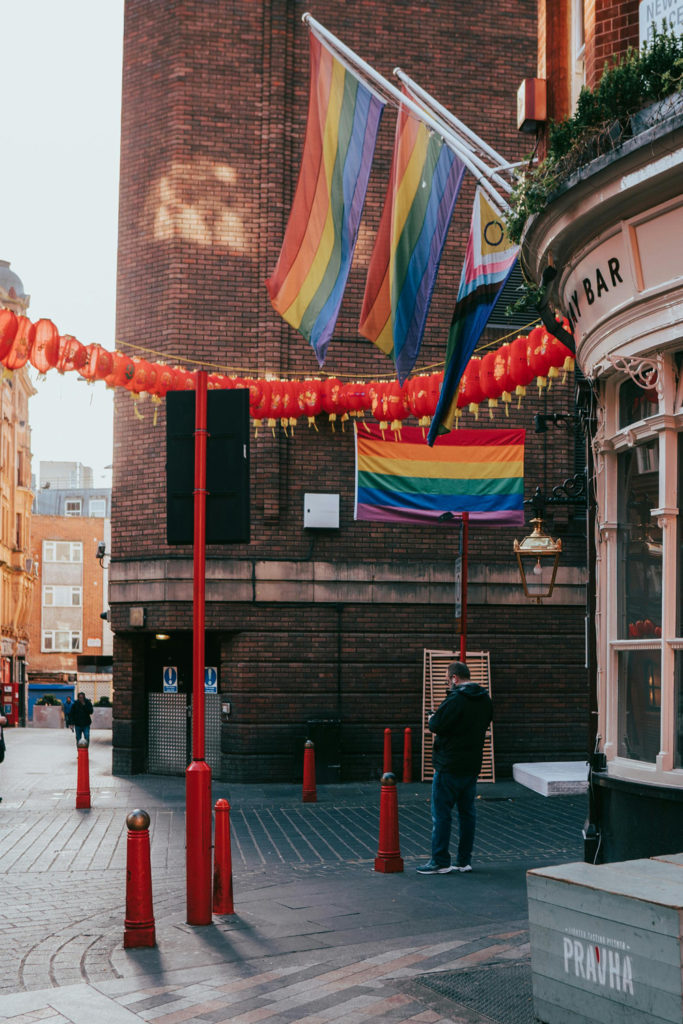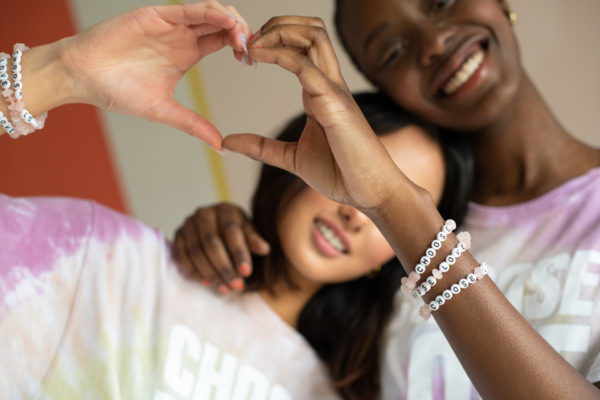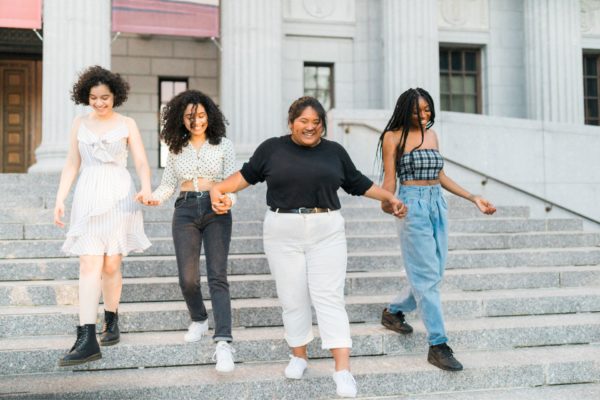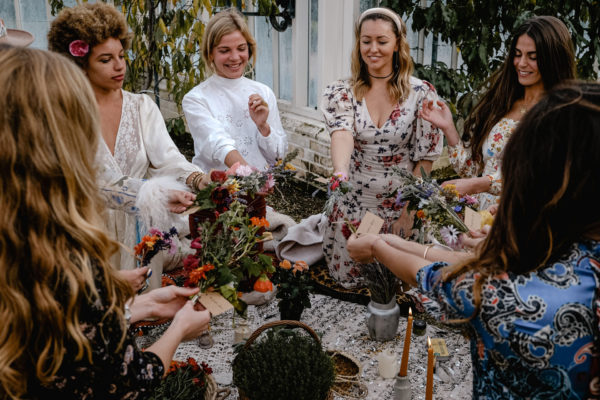International Women’s Day 2023: The Female Founder Funding Gap
By
2 years ago
Lucy Cleland investigates

There are more women founding businesses than ever, but what’s really holding them back from scaling up is equitable access to funding. Lucy Cleland investigates the funding gap when it comes to female founders.
Why Do Women Face A Funding Gap When Founding Companies?
‘Why can’t a woman be more like a man?’ crooned Rex Harrison in the musical My Fair Lady nearly 50 years ago. Those lyrics still very much resonate today, especially when it comes to women entrepreneurs and the VCs that dish out the cash to help them scale their businesses. The statistics speak for themselves: according to the 2022 Rose Review, although female-founded businesses account for a record share of new firms, there’s a clear funding gap with total venture capital investment levels in them remaining at a miserly one to two per cent. So what are the barriers? How can we overcome them and what do female founders think is really going on?
From The Classroom Days
The classroom is a good place to start, says former Goldman Sachs girl Farah Kabir, who founded women’s sexual wellness brand Hanx. ‘We need to empower the next generation of entrepreneurs and investors,’ she says. ‘We need greater teaching on starting a business and building an investment portfolio (be it small or large). Demystifying the process would encourage future female founders, angels and VCs to take that big step. I truly believe financial literacy would have an almost limitless positive impact on society.’
Undeniably that would be a game-changer for every child, but for the women contending with their businesses now, there are plenty of stones to turn over that reveal the system for getting funding is harder for them. Although the Rose Review says that 134 organisations with a combined investment power of nearly £1 trillion have signed up to the Investing in Women Code, which commits them to improve the potential for female entrepreneurs to succeed, ‘this should not just be pretty words,’ says Tessy Mosindi, founder of Code Funhouse, an AI tutor for kids learning text-based programming. ‘There’s a lot of virtue signalling in terms of investors claiming to help women but the data suggests otherwise.’ Farah agrees: ‘I see the same cycle repeat itself periodically: statistics on the dire situation for female founders, followed by corporate pledges – and minimal moves to make tangible change.’

Facing A Table Of Men
Of course, when you actually manage to get your feet through the door to pitch for investment, it’s common that the VC teams around the table are all men. As the Rose Review suggests the VC industry is ‘a close-knit group of investors, advisors and entrepreneurs, and there is a lack of transparency as to how funding decisions are made, suggesting signs of perceived bias’. Laura Harnett, the founder of sustainable eco-cleaning accessories company Seep, says, ‘Analysis shows that women get asked tough questions about downsides, financials and risks whereas men get asked about strategy and vision.’ Farah got propositioned in one of her pitches.
Joanna Jensen, who founded children’s wellness brand Childs Farm in 2010 as her youngest child suffered from atopic eczema and treatments had not moved on from the products she herself used as an eczema sufferer in the 1970s, encountered all the clichés throughout her early funding rounds. ‘As the divorced mother of two small girls, I had to deliver on the [traditionally male] attributes of drive, ambition and hunger and then some. I’ve been patronised many times – had questions about the business I was running directed to a male business partner and listened as he was praised for doing such an amazing job. But if things went wrong, the finger was pointed straight at me and manners were left at the door.’
‘We need women in investment decision making roles,’ urges Grace de Alvaro, who is bootstrapping her skincare and makeup brand Sports HAI, catering to those who sweat. ‘We need women there who act like women and who have had experience within the startup journey.’ Grace makes a good point here and brings to mind Madeleine Albright’s oft-quoted, ‘There is a special place in hell for women who don’t help each other.’ However, evidence shows that gaining funding from a woman in the early stages can, in fact, backfire later on down the road. Last year Forbes reported on recent research published by Organization Science in May 2022. It examined 2,136 startups tracked by the database, Crunchbase, which provides information on startups and investment activity. It drew the conclusion that ‘when women receive support from other women, observers may implicitly believe that the relationship was motivated by considerations other than merit, which leads to a discount in perceptions of competence’. Ouch.

Bringing Their Own Superpowers
Women, of course, have their own superpowers to bring to the table. ‘We are resilient, empathetic, intuitive, multitaskers – qualities needed for a great founder,’ says Carmella Sternberg, who has just started her third business Mamma, after burnout running an events company. ‘And we collaborate,’ agrees Laura Harnett. ‘As women, we all naturally help each other and magical things happen when we get together and share anything from introductions to investors and customers to great service providers – advice is given that can save hours and money.’
‘Calling upon your network for advice and introductions has been a huge help,’ agree Serena Hood and Lucinda Chambers, the former British Vogue colleagues who founded disrupter digital fashion and interiors retail platform Collagerie, in their quest to create ‘the most beautiful digital space possible’. They also believe in the power of two: ‘Having a business partner, who you have worked with before, has been invaluable,’ says Serena. ‘It cuts out a huge amount of unknowns and you propel each other forward.’
Focused networks such as Female Founders Rise also come into play. Started by Emmie Faust, serial entrepreneur and mum of four, FFR is a digital and in-real-life networking organisation to help more female founders get funded and support entrepreneurship in women. The community has grown to over 1,500 members in less than six months. ‘Being a founder can be lonely,’ says Emmie, ‘and as a female founder there are additional challenges so communities like this are vital.’
But, believes Joanna Jensen, it’s ultimately the tenacity, passion and drive of the founder, regardless of sex, that will be the biggest determinant of whether a business will succeed. ’It is about 100 per cent commitment,’ she says. ‘I see many founders spending too much time at networking events, talking about business, attending conferences about business, reading books about business – when they should be actively living, breathing, running and working on their business. It is a full-time job and if you have a family, you have to get up earlier and go to bed later. This isn’t for the faint of heart.’ As she sold her business to PZ Cussons for £36.8 million last year, her advice might be the most sage of all, although it did come at a cost to her mental and physical health: ‘When I was full throttle, I didn’t look after myself,’ says Joanna. ‘I just kept going – through three major operations and the menopause, while single-handedly bringing up my girls. I also gained weight. I wouldn’t recommend it.’
It’s looking more and more like Rex Harrison was right, so what’s the answer to the female founder funding gap? Education, verifiable actions not just words, transparency around funding decisions and more women taking part in those decisions. Plus, an acknowledgement and provision for the fact that it is undeniably women who take on more of the ‘caring’ roles when it comes to childcare, sickness, ageing parents and domestic work – and this too comes at a financial and time cost – and a wellbeing one too. It seems there’s still a lot of work to do.
What all women agree on though is that it’s important to maintain a sense of humour, if you can. So heed Tessy Mosindi’s words: ‘Nigerians say if you don’t chop life, life go chop you, meaning remember to enjoy yourself.’







